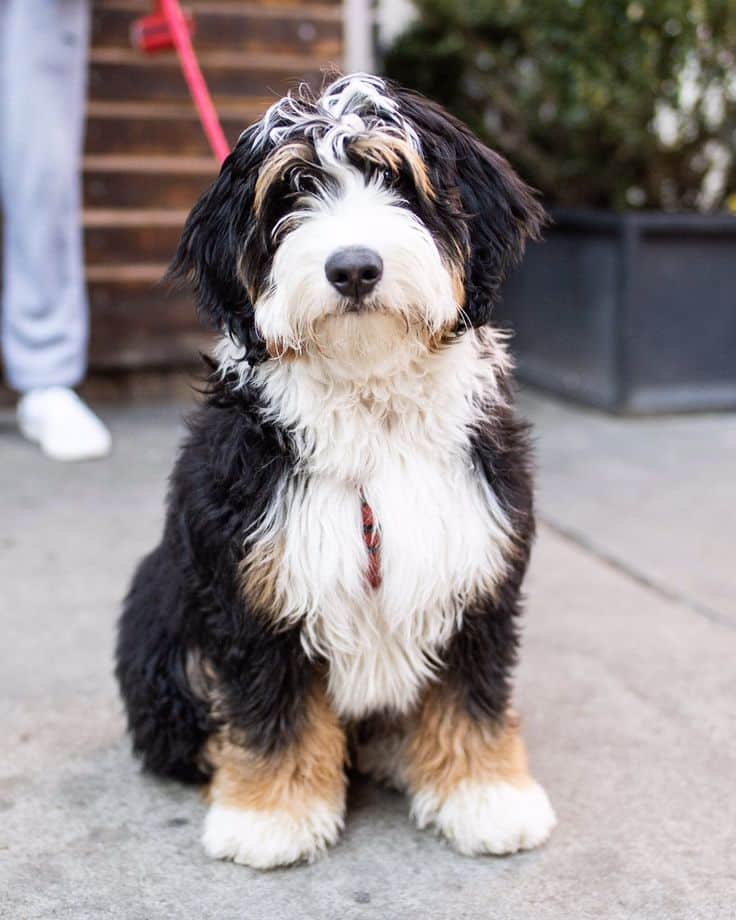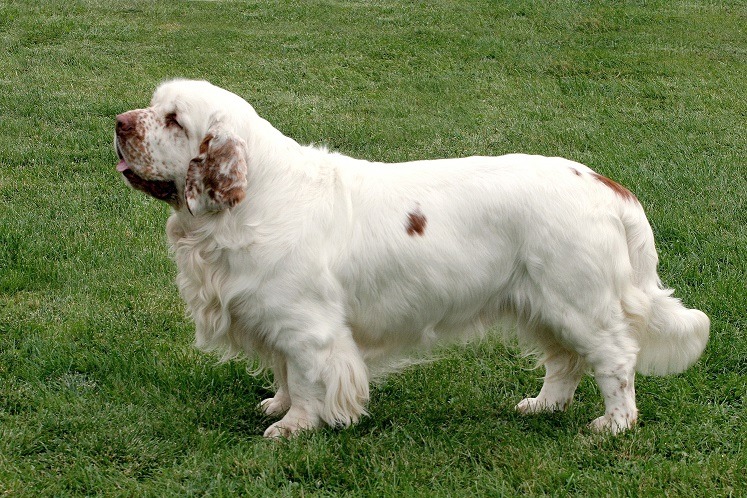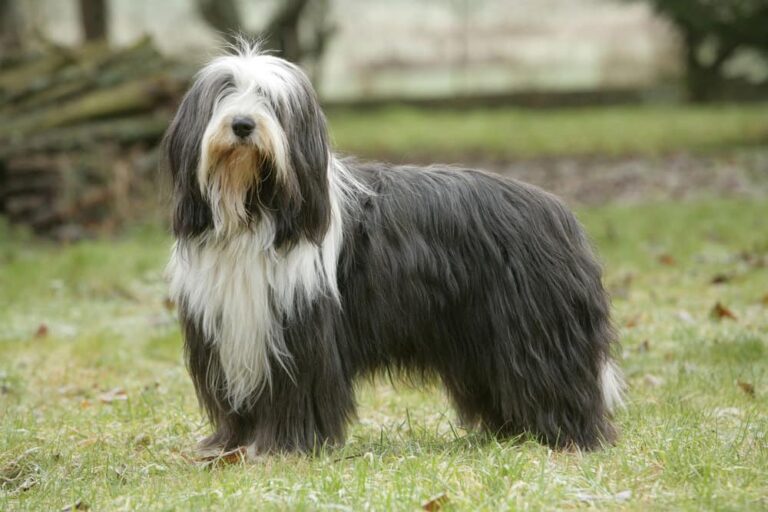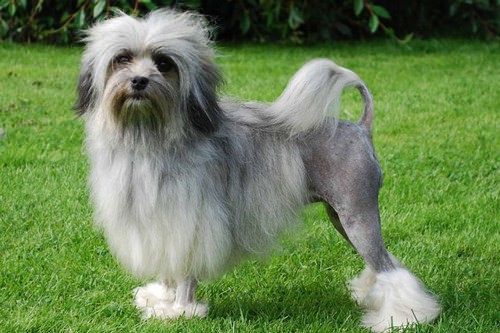Mini Bernedoodle is a crossbreed between a Bernese Mountain Dog and a Miniature Poodle. This designer breed combines the best traits of both parents. They are small, intelligent, and affectionate. Mini Bernedoodles are great for families and individuals. Their friendly nature and compact size make them suitable for apartments and homes with small yards.
Size and Appearance
Weight and Height
- Weight: Mini Bernedoodles typically weigh between 25 and 49 pounds.
- Height: They stand about 18 to 22 inches tall.
Coat and Colors
- Coat: Mini Bernedoodles can have curly or wavy coats.
- Colors: Common colors include black, white, and brown, often in combinations.
- Markings: They often have tri-colored patterns, making them even more adorable.
Temperament and Personality
Key Traits
- Intelligent: Mini Bernedoodle inherit intelligence from the Miniature Poodle.
- Affectionate: They love being around people and other animals.
- Loyal: Mini Bernedoodles are very loyal, thanks to their Bernese Mountain Dog lineage.
- Gentle: These dogs are gentle and make excellent therapy dogs.
- Friendly: Overall, Mini Bernedoodles are friendly and adaptable.
Health and Lifespan
Lifespan
- Lifespan: Mini Bernedoodle generally live between 12 to 15 years.
Common Health Issues
- Hip Dysplasia: A common issue in many dog breeds.
- Eye Problems: Regular vet check-ups can help catch these early.
- Skin Allergies: Can be managed with proper care and diet.
Care Tips
- Regular Vet Check-ups: Essential for maintaining their health.
- Balanced Diet: Crucial for overall well-being.
- Responsible Breeding: Helps reduce genetic health risks.
Exercise Needs
Activity Level
- Active: Mini Bernedoodle need regular exercise to stay healthy.
Daily Activities
- Daily Walks: Important for their physical health.
- Playtime: Keeps them engaged and entertained.
- Mental Stimulation: Puzzle toys and training sessions help maintain mental sharpness.
Favorite Activities
- Hiking: Mini Bernedoodles enjoy exploring the outdoors.
- Swimming: Many Mini Bernedoodles love water activities.
Adaptability
- Versatile: Can adapt to both active lifestyles and more relaxed settings with their owners.
Grooming Requirements
Coat Type
- Curly Coats: Require regular brushing to prevent matting.
- Wavy Coats: Need less frequent grooming, but regular brushing is still beneficial.
Routine Care
- Ear Cleaning: Prevents infections.
- Teeth Brushing: Essential for dental health.
- Nail Trimming: Keeps nails at a healthy length.
Training and Socialization
Training
- Straightforward: Mini Bernedoodle is generally easy to train using positive reinforcement methods.
Socialization
- Early Exposure: Introduce them to different people, environments, and animals early on to develop well-adjusted adults.
Ideal Living Conditions
Adaptability
- Various Conditions: Mini Bernedoodles are suitable for apartments, homes with yards, and indoor living.
- Indoor Living: They should be kept indoors with family, not suited for outdoor living.
Family Interaction
- Attention: Mini Bernedoodles thrive on plenty of attention and interaction from family members.
Hypoallergenic Qualities
Shedding
- Low to Non-shedding: Mini Bernedoodles are suitable for people with allergies.
Travel Companion
- Compact Size: Makes them excellent travel companions.
Allergy Concerns
- Hypoallergenic: Mini Bernedoodles are appealing for those with allergies.
Feeding and Nutrition
Diet
- High-Quality Food: Feed Mini Bernedoodles high-quality commercial dog food appropriate for their age, size, and activity level.
- Portion Control: Prevents obesity by managing food portions.
- Hydration: Ensure fresh water is always available.
Overall Health
- Proper Diet: Supports their overall health and well-being.
Finding a Mini Bernedoodle
Reputable Breeder
- Avoid Scams: Stay clear of puppy mills and online scams.
- Health Clearances: Look for health clearances for the puppy’s parents.
- Visit Breeder: If possible, visit the breeder’s facility to ensure ethical practices.
Adoption
- Rescue Organizations: Consider breed-specific rescues and general rescue organizations.
- Trustworthy Source: Ensure you are adopting a healthy puppy from a reputable source.










